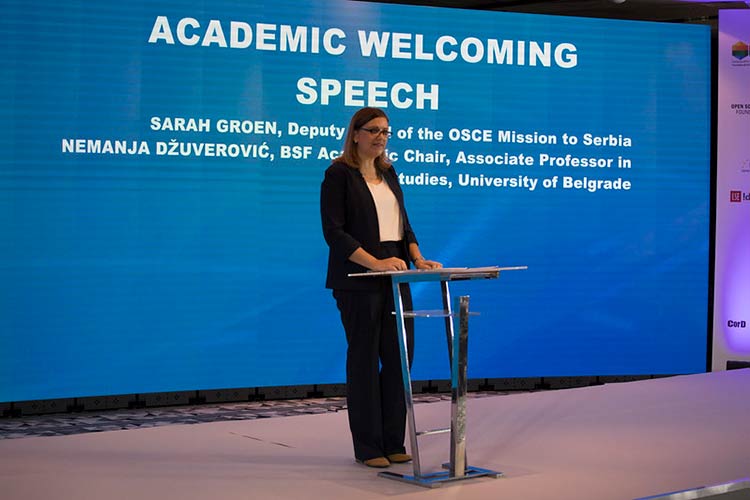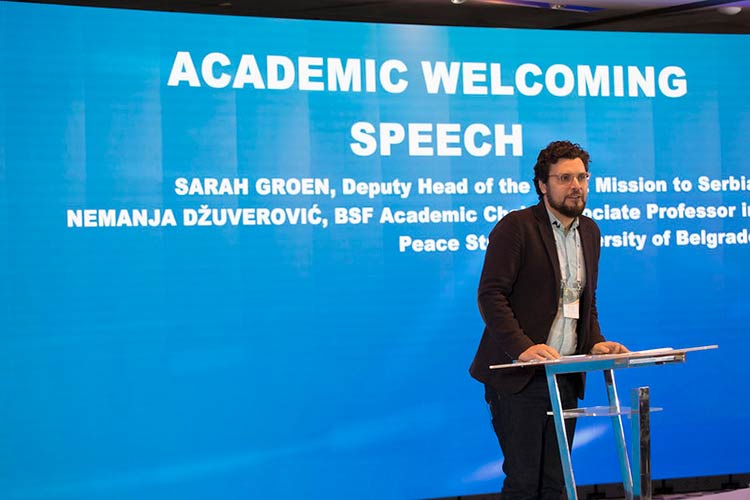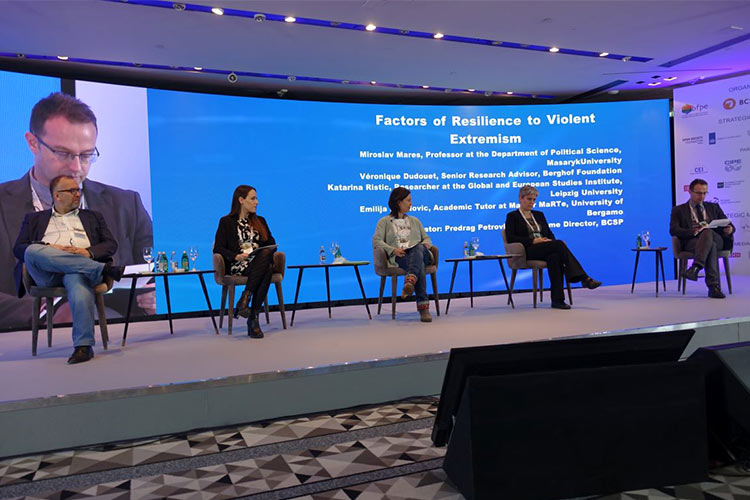Deputy Head of the OSCE Mission to Serbia Ms. Sarah Groen opened Academic event of the 11th Belgrade Security Forum. In her opening statement she pointed out that development of inclusive security and active engagement of young people in security sector are of extreme importance.
“Gender equality and inclusivity in security sector are non-optional’’, said Sarah Groen. She also emphasized that it is important to strengthen the civil sector and to encourage dialogue between civil society and governments.

Associate Professor in Peace Studies from University of Belgrade and BSF Academic Chair Mr. Nemanja Džuverović, said that violent extremism is gaining more academic and political attention, thus the concept of resilience to violent extremism is the topic of this year’s Academic event of the Belgrade Security Forum.
Mr. Peter Neumann, Professor of Security Studies at the King’s College London was Keynote Speaker during Academic Event. He spoke about jihadism on the crossroad, pose the question what is the biggest threat jihadism or far-right putting it in the context of political polarization and political violence.

“Experts in the field recognize either far-right or jihadism as the most significant structural threat for the Europe during the next five years. But, this question is often used as a political football’’, Peter Neumann pointed out.
Academic Panel 1: Factors of Resilience to Violent Extremism
Ms. Veronique Dudouet, Senior Research Advisor at Berghof Foundation opened the first Academic Panel by saying that resilience has become a catch-all term. She pointed out that in the field of political science, resilience is defined as an ability of political systems to adjust to changing political conditions while maintaining their structures. Local leaders and their local initiatives have to bridge identities and introduce inter-ethnic cooperation.
”Making sure that individuals are aware of false narratives (or biased online content) through inclusion of former extremists may be the key to building community resilience’’, concluded Veronique Dudouet.

Ms. Katarina Ristić, Researcher, Global and European Studies Institute, Leipzig University talked about the role of laughter in spreading radical ideas. She said that “deadly memes’’ are creating connections between extreme communities, as they are promoting their ideas, which can lead to extreme acts. Students don’t consider these memes as threats, because they believe they are experts on meme culture. However, they can create great impact on uneducated, since they simplify messages and combine them with humor.
Ms. Emilija Davidović, Academic Tutor at Master MaRTe, University of Bergamo, pointed out that women are often excluded from studies of extremism. However, they are engaged in it as members, combatants or enablers of extremist beliefs. Voices of women from different backgrounds must be heard, so that they don’t feel isolated from the society, because that makes them potential targets for extremists.
”Women’s voices are often silenced, but they are necessary for creating resilience’’, concluded Emilija Davidović.
Mr. Miroslav Mares, Professor at the Department of Political Science, Masaryk University underlined that radicalization can also be seen in security agencies and police forces. There have been many cases of infiltration of extremists in security forces, for instance in Germany, France and Czech Republic. Resilience should be built through specific programs of prevention and through cooperation between academics and governments.
“Resilience is built when we see the officers as part of the community, not through isolation’’, concluded Miroslav Mares.
Source: belgradeforum.org